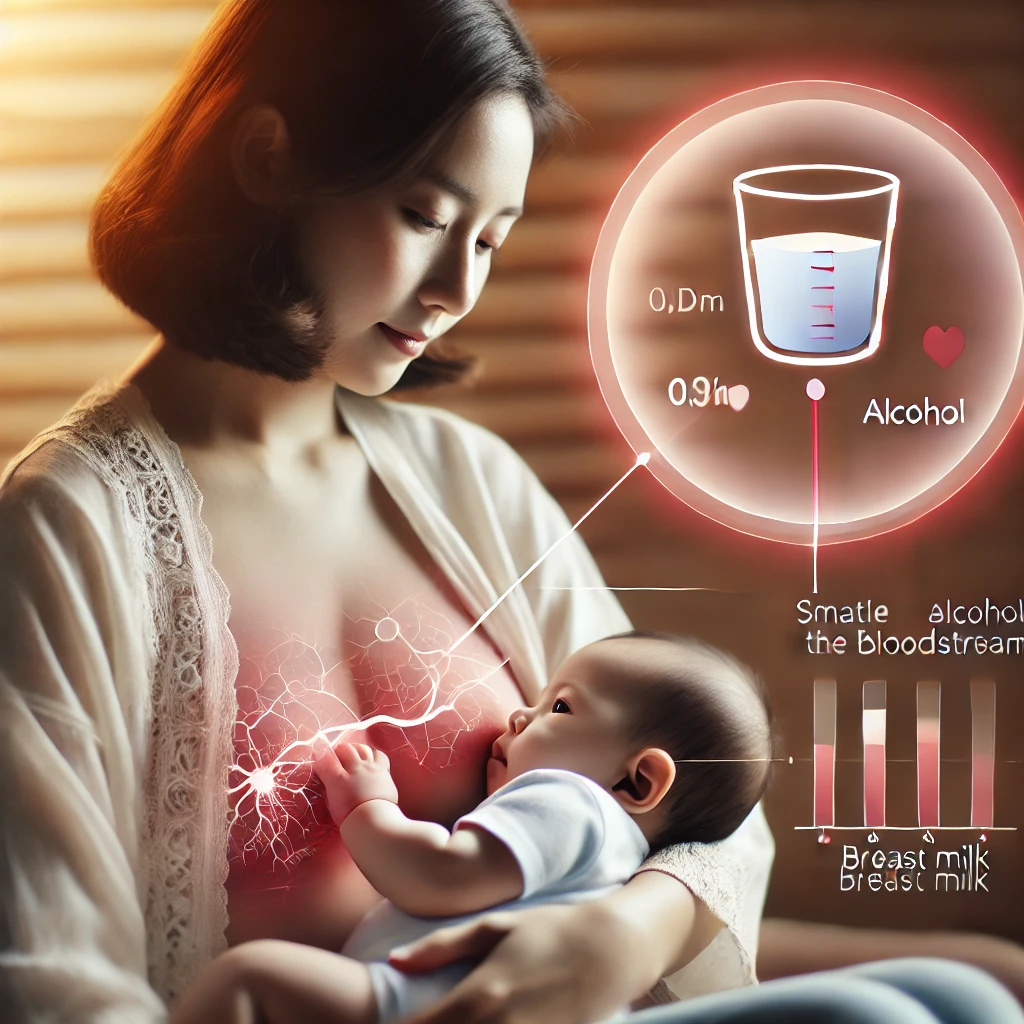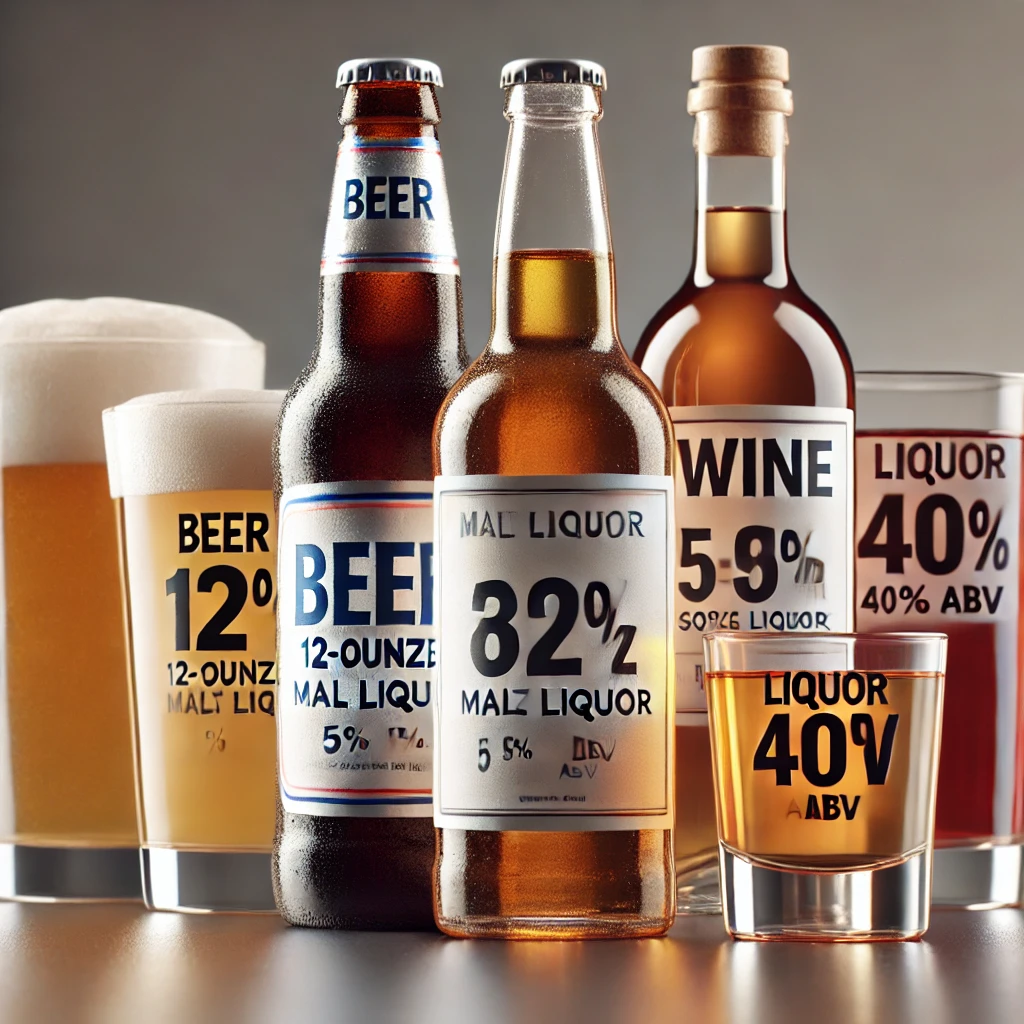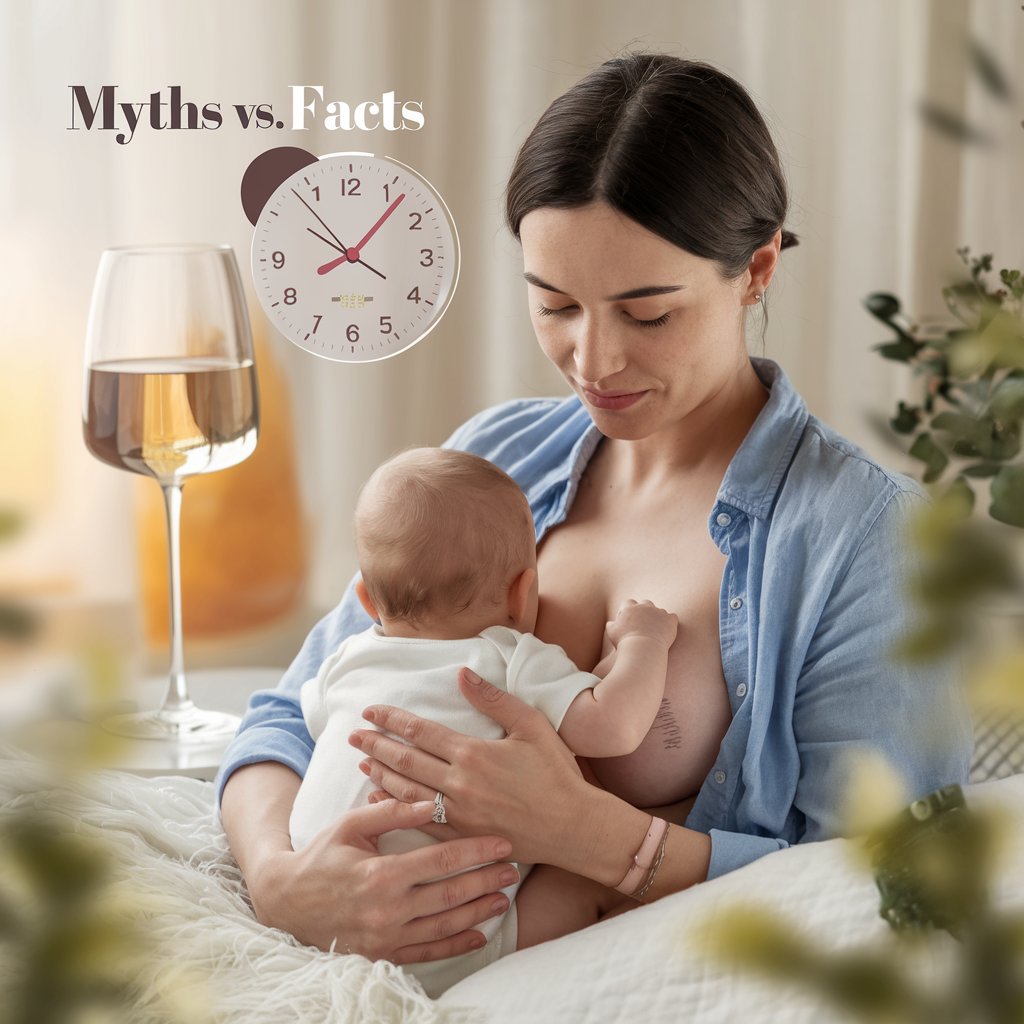Is It Safe to Drink Alcohol While Breastfeeding?

Breastfeeding is one of the most natural and essential acts a mother can do for her baby, providing not only nourishment but also immunity and emotional bonding. However, new mothers often wonder about the safety of their lifestyle choices, including the consumption of alcohol. Is it okay to drink alcohol while breastfeeding? This question arises frequently, and it is crucial to address it with clear, evidence-based information to ensure the health and safety of both mother and baby.
1. Understanding Alcohol and Breastfeeding

No amount of alcohol has been definitively classified as “safe” while breastfeeding, as alcohol passes from a mother’s bloodstream into her breast milk. This means that if a mother drinks alcohol, her baby is also exposed to it. Even though the amount of alcohol in breast milk may be small, regular exposure can lead to several developmental concerns for the infant.
2. How Alcohol Affects Breastfeeding and Babies

When a mother consumes alcohol, it enters her bloodstream, and a portion passes into her breast milk. The concentration of alcohol in breast milk is usually around the same as in the mother’s blood. Research suggests that excessive alcohol consumption can affect a baby’s growth, development, and sleep. Here’s how:
Impaired Growth and Development:
Babies who are exposed to regular alcohol intake via breast milk may experience slower physical development and issues with motor skills.
Sleep Disruption:
Alcohol can interfere with a baby’s sleep patterns. They may become drowsy but have shorter and more fragmented sleep, which is unhealthy for their overall well-being.
Weakness and Drowsiness:
Babies may appear unusually sleepy or weak after being breastfed following alcohol consumption. This could affect their ability to feed properly, leading to unhealthy weight gain.
3. Recommendations on Alcohol Consumption While Breastfeeding

If you’re wondering whether it’s okay to have a drink while breastfeeding, experts generally recommend abstaining from alcohol to ensure your baby isn’t exposed to any potential risks. However, occasional consumption can be managed carefully. The key is moderation and timing.
According to guidelines from health experts, here are some tips for breastfeeding mothers who choose to drink alcohol:
1. Limit Alcohol Intake:
It is safest not to drink alcohol while breastfeeding, but if you do, limit it to one standard drink per day. In the United States, one standard drink is defined as:
12 ounces of beer (5% alcohol by volume)
8 ounces of malt liquor (7% alcohol by volume)
5 ounces of wine (12% alcohol by volume)
1.5 ounces of liquor (40% alcohol by volume)
2. Wait Before Nursing:
It is essential to wait at least two hours after consuming alcohol before breastfeeding. This allows your body to metabolize the alcohol, reducing the amount passed to your baby.
3. Use Stored Breast Milk:
If you plan on drinking, prepare in advance by pumping and storing breast milk before consuming alcohol. This ensures your baby can still be fed breast milk without being exposed to alcohol.
4. Avoid “Pumping and Dumping”:
Contrary to common belief, pumping and dumping your breast milk won’t speed up the removal of alcohol from your body. Alcohol naturally leaves your breast milk as it leaves your bloodstream.
5. Monitor Your Milk Supply:
Consuming alcohol frequently can reduce your milk supply over time. Alcohol may decrease the hormone oxytocin, which is responsible for milk ejection. This can result in less milk for your baby.
4. Alcohol and Breast Milk: Myths vs. Facts

There are several misconceptions surrounding alcohol consumption during breastfeeding, and it’s important to separate myths from facts to make informed decisions.
1. Myth:
A small amount of alcohol won’t harm the baby.
Fact:
While a small amount of alcohol may not cause immediate visible harm, regular exposure—even in small doses—can affect the baby’s growth, sleep, and development.
2. Myth:
Pumping and discarding breast milk removes alcohol faster.
Fact:
Alcohol is cleared from breast milk at the same rate as it leaves your bloodstream. Pumping and dumping may relieve engorgement, but it won’t reduce the alcohol level in your milk faster.
3. Myth :
Drinking alcohol helps with milk production.
Fact:
Alcohol may temporarily increase milk production for some mothers, but frequent consumption can decrease overall milk supply in the long run.
5. Tips for Safe Breastfeeding When Drinking Alcohol

For mothers who occasionally enjoy a glass of wine or beer, it’s important to plan and take precautions to minimize any risks to the baby. Here are a few tips to help:
Time Your Drinks:
If you know you’ll be consuming alcohol, try to time it right after a breastfeeding session. This gives your body more time to metabolize the alcohol before your next feed.
Hydrate:
Drinking plenty of water can help your body process alcohol faster. Hydration is also essential for maintaining a good milk supply.
Eat While Drinking:
Having food in your stomach while drinking can slow down alcohol absorption into your bloodstream, which reduces the amount that passes into your breast milk.
Ask for Support:
If you’re unsure about alcohol consumption or have questions about breastfeeding in general, consult your healthcare provider or a lactation consultant. They can offer personalized advice based on your situation.
Conclusion: Prioritize Your Baby’s Health
The safest choice for breastfeeding mothers is to avoid alcohol entirely. However, if you choose to drink, doing so in moderation and timing it carefully can reduce potential risks. Remember that breastfeeding is highly recommended for the first six months of a baby’s life and can continue as part of a healthy diet for up to two years. By making informed decisions about alcohol consumption, you can ensure your baby remains healthy and happy.
Advice:
As a new mother, your health and your baby’s well-being are of utmost importance. Choosing to avoid alcohol during this precious time can help ensure your baby grows in the healthiest environment possible. If you’re ever unsure about what’s best for you and your child, reach out to your healthcare provider for guidance. Embrace this journey with mindful choices that prioritize both your self-care and your baby’s development, and remember, every small decision counts toward a brighter, healthier future for both of you.




